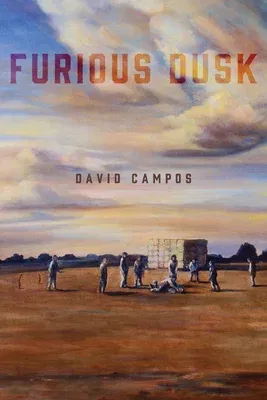Rhina P. Espaillat, judge of the 2014 Andrés Montoya Poetry Prize,
describes Furious Dusk, David Campos's winning collection, as "a work
whose five parts trace a son's efforts--only partially successful--to
fulfill his father's expectations and--perhaps even more
difficult--understand those expectations enough to forgive them." The
poet's reflections are catalyzed by learning of his father's impending
death, which, in turn, forces him to examine his father's expectations
against his own evolving concept of what it means to be a man.
The poems' speaker sifts through his past to find the speckles of memory
that highlight the pressures to fit the mold of masculinity forged both
by the Mexican culture of his father and the American culture he
inhabits. The problematic norms of both rip the speaker in two
directions as he recounts his father's severe parenting, as he explores
the inability to father a child, as he witnesses human suffering, as he
overeats and confronts the effects on his body, and, finally, as he
realizes what it means to transcend these expectations. The speaker's
epiphany frees him to reject masculine stereotypes and allows him to see
himself simply as a human being. That realization, in turn, enables the
speaker to see his father not only as "father," "husband," and "man,"
but as a citizen of Earth.
Through Campos's bold imagery and accessible language and themes, he
memorably adds to the continuing conversation of the effects of cultural
expectations on the children of immigrant parents.


